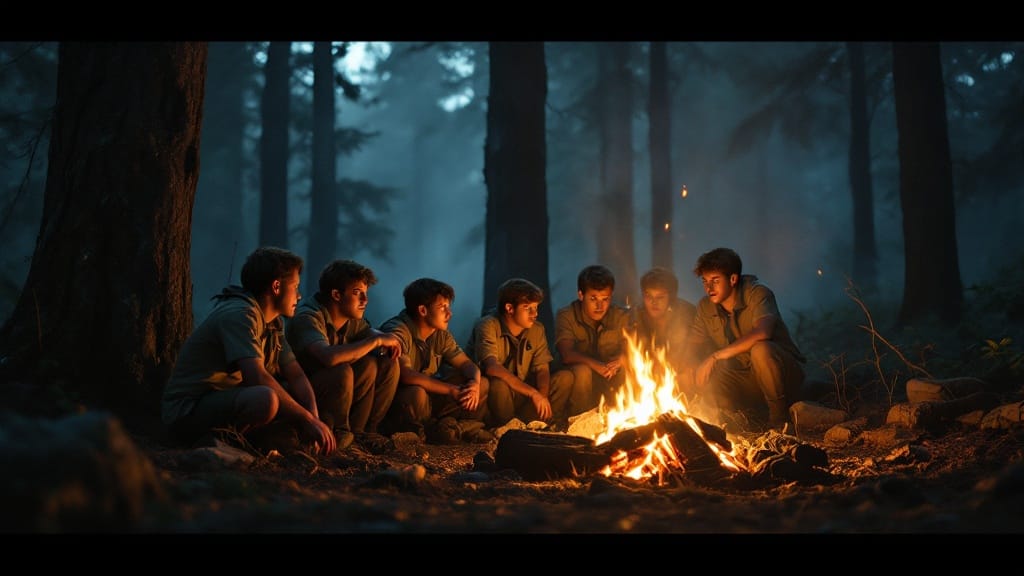Drama
A Convincing Illusion

Written by Marlon Gonzalez
Warning – This review may contain spoilers.
A Convincing Illusion tells the story of Viggo Rossi, a man whose life spirals out of control after he’s diagnosed with HIV. As Viggo grapples with the emotional and physical challenges of the disease, he’s forced to reveal the truth to his fiancée, Bella, which sparks a deep conflict in their relationship. Bella, conflicted by feelings of betrayal, must decide whether she can stand by Viggo despite the infidelity that led to his diagnosis. The screenplay explores the emotional toll of illness, guilt, and love, and questions whether a relationship can survive such immense strain.
The story presents a strong, relatable core, addressing infidelity and the complexities of love under pressure. Viggo’s internal struggle, along with Bella’s reaction to the news, sets up a tense dynamic that drives the narrative. However, I found Bella’s motivations unclear. Her decision to stay with Viggo, despite the betrayal, lacks the emotional depth that could have made her choices feel more compelling. Their relationship feels underdeveloped, which makes it hard to fully connect with her struggle. The stakes are high, but without a more profound understanding of why Bella remains, the emotional impact is somewhat diminished. While the screenplay deals with difficult themes effectively, the relationship at the center of the story needs further exploration to resonate fully with the audience.
The screenplay is generally well-constructed but has a few noticeable issues. There are some spelling and punctuation errors scattered throughout, particularly in the dialogue. Additionally, there are moments where flashbacks are introduced without clear transitions, causing confusion. These issues could easily be addressed, but they did pull me out of the narrative at times. The dialogue itself is mostly strong and moves the story forward, though the voices of the characters occasionally blend together. For instance, both Viggo and Bella use similar phrasing, which weakens their individual characterizations. There are also minor formatting problems, such as missing verbs, but nothing that significantly detracts from the overall readability.
The pacing of the screenplay is solid, and the conflict between Viggo and Bella unfolds naturally. However, I found myself wanting more from Bella’s perspective, especially in her interactions with her family, which could have provided more insight into her internal conflict. While the plot is compelling, the lack of a deeper emotional bond between the two leads made some of the story’s most important moments feel less impactful. If the backstory of their relationship were expanded upon, the audience could better understand the reasons behind Bella’s choices, making her arc more believable and engaging.
A Convincing Illusion has the potential to be a deeply emotional and thought-provoking story about love, betrayal, and the impact of illness on relationships. I think it would be well-received during a table read, especially if the core relationship is given more depth.
Comedy
Troop 458

WARNING! This review contains SPOILERS!
Troop 458, written by Trevor Allen, captures the often daunting, yet transformative, experience of being the new kid in a world full of unknowns. We follow Sidney, an anxious boy thrown into his first Boy Scouts campout, where he faces both the perils of acceptance and the strangeness of his eccentric scout leader. As spooky campfire tales start to weave into reality, Sidney is forced to confront his fears head-on, finding moments of humor, adventure, and unexpected camaraderie along the way.
I like the concept of Troop 458 because it blends coming-of-age themes with a playful sense of adventure, all wrapped in an atmosphere tinged with just the right amount of mystery. Allen’s writing brings to life a cast of memorable characters, especially through Sidney’s journey of growth. The tension between humor and fear feels authentic to the Boy Scouts’ setting, and it captures the real challenges kids face when trying to fit in.
What resonated with me most was the screenplay’s exploration of courage—not just in facing mythical dangers but in embracing who you are, quirks and all. Some aspects could benefit from a clearer focus on character motivations and tighter pacing to keep the momentum strong, particularly during scenes that blur the line between myth and reality.
The dialogue is great in many places, offering humor that feels natural for a group of young scouts. There were moments where I felt the conversations could be a bit sharper or more distinct to heighten the comedic or emotional impact. Character development is a strong suit, with Sidney’s evolution being both relatable and satisfying, but secondary characters could have a bit more depth to elevate the ensemble.
Allen’s Troop 458 is polished, with solid grammar, spelling, and formatting that adhere to professional standards. The structure is clean and makes for an easy read, setting up scenes that are visually compelling.
Troop 458 delivers an enjoyable mix of humor, heart, and a touch of the supernatural, leaving me eager to see how it might come to life on screen.
Drama
Ellie

WARNING! This review contains SPOILERS!
Directed by Marcus Mejia
Ellie is a refreshing experience that pulled me right into the world of a young, shy man navigating a work meeting while secretly yearning for a bit of magic in his everyday life. We’re taken through his imaginative, musical daydream—a beautiful escape from reality that reveals his true desires. I loved how the film peeled back layers of his personality without a single word of dialogue. Instead, the music carried the narrative, and surprisingly, it worked so well.
Marcus Mejia did an excellent job blending dramedy elements to keep the film engaging. The moments of humor and more emotional beats make the film feel well-rounded. Mejia’s choice to swap dialogue for music was a bold move, and it paid off. I could feel the character’s internal struggles and hopes as the music brought out emotions words couldn’t.
The lighting felt intimate, almost like it was giving us a window into the protagonist’s soul, and the cinematography perfectly captured the whimsical tone of his daydreams. I noticed how smoothly the editing transitioned between reality and fantasy, which made the story’s pacing feel just right. The sound design was on point, with every beat of music syncing beautifully with the character’s emotional highs and lows.
I loved when the protagonist’s daydream overlapped with reality, creating this seamless blend that felt so relatable. I admired how it portrayed the quiet, unspoken dreams we all carry. It was a reminder of the power of our inner worlds and how much magic lies just beneath the surface of our everyday lives.
Ellie left a gentle yet lasting impression. It’s a unique, heartfelt short film that shows how creative risks can pay off. Ellie is a memorable journey that’s definitely worth the watch.
Drama
Finding Acceptance

Directed by Andrew DeBennett
WARNING! This review contains spoilers.
Watching “Finding Acceptance” was an experience that brought me back to those anti-bullying films we’d see in school assemblies. The story follows Mary, a new student in a wheelchair, navigating the often-tough world of school friendships. Initially, she faces teasing from her peers but finds a genuine friend in Liz, who even manages to extend kindness to Mary’s bully, Max. The message is straightforward and clear: acceptance and empathy matter.
I could see what the director was aiming for—Andrew DeBennett notes that the film was both a joy to create and a personal project. The heart of the story shines through, with Kaylah Pollock (Mary) and Laney Hansen (Liz) bringing warmth to their roles. Their connection feels genuine, even if the overall story feels a bit too familiar.
Technically, the film could have used some fine-tuning. The sound mix was rough, with the music often drowning out dialogue. The editing also felt choppy, making it harder to stay immersed in the story. The dialogue leaned into clichés—phrases like “loser” felt outdated and took away from the realism. The cinematography, however, was a bright spot, creating a warm, inviting feel that suited the film’s positive message.
I felt like the story could’ve benefited from more depth. The bullying that Mary faces is minimal, making her eventual friendships feel somewhat predictable. For younger audiences, this simplicity might be engaging and easy to digest, but it misses the chance to delve into the more complex aspects of acceptance.
In the end, “Finding Acceptance” delivers a positive, albeit simple, message. While it didn’t connect with me on a deeper level, I can see it being a useful film for educational settings, especially for younger viewers learning about kindness and friendship.










